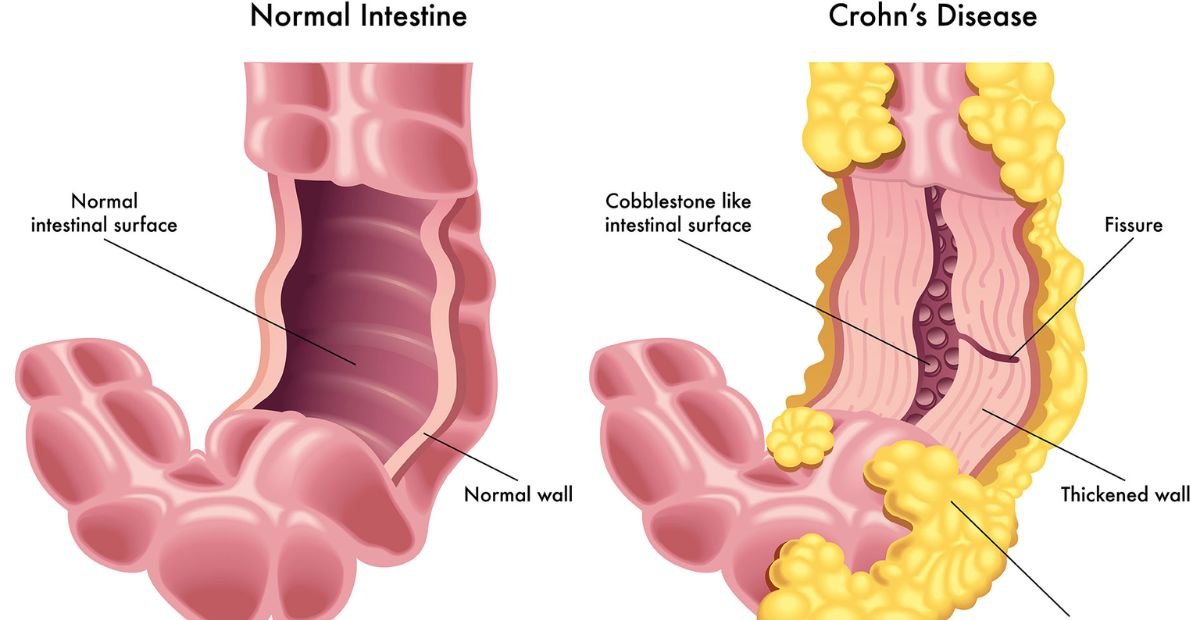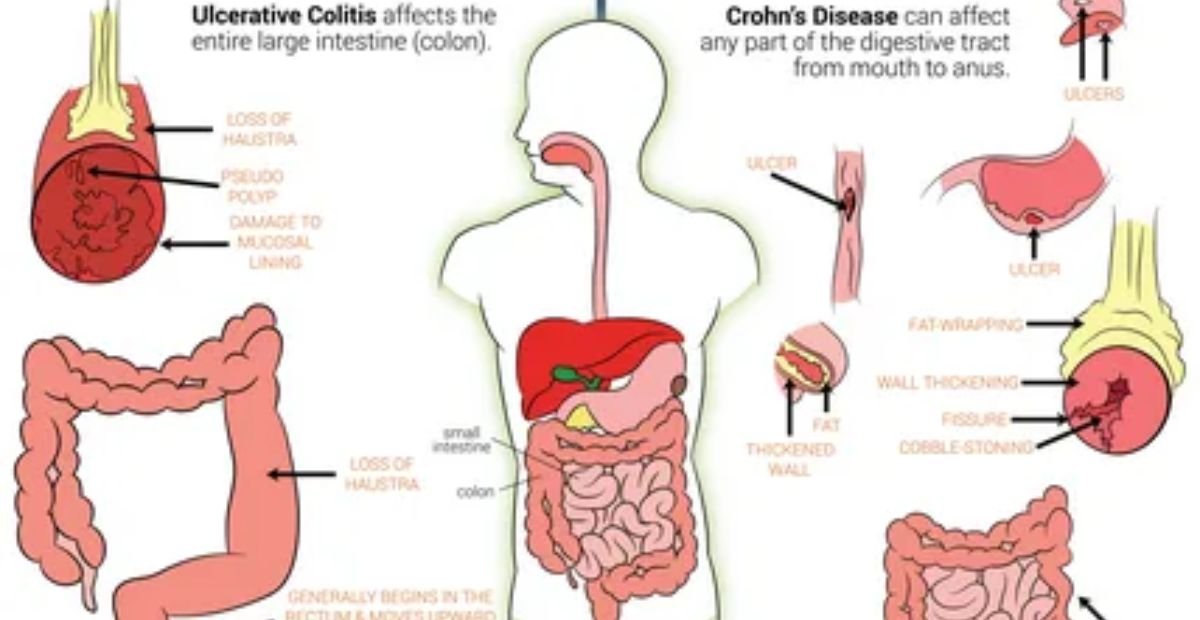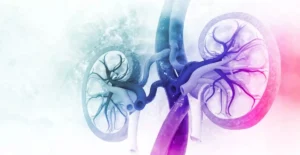Crohn’s disease is a condition that affects the digestive system. Most people with Crohn’s disease can live a good life without dying from it.
Crohn’s disease is confusing and can be serious. People often wonder, “What Is Crohn’s disease?” This question is important for those with the disease and their loved ones. It’s essential to understand and learn about it.
Crohn’s disease is a long-term, inflammatory condition that affects the digestive system. It can cause serious problems like blocked intestines, infections, or even cancer. Medical care and management can reduce these risks and improve quality of life.
Quality of Life Considerations
Thinking about personal satisfaction is important when you have a disease like Crohn’s. It means looking at things like quality of life, social relationships, and financial security. Crohn’s treatment has many tough side effects, so it’s important to find a balance between taking medicine and living your life.
People with chronic diseases like Crohn’s should exercise regularly, manage stress, and eat a proper diet. Healthcare professionals need to offer support and help, and patients may need extra resources to handle this long-term condition.
Different Treatments for Crohn’s Disease
Patients can access several treatment options for handling Crohn’s Disease, a long-term condition affecting the digestive system. These medications include suppression and anti-inflammatory drugs found in the gastrointestinal system and the use of heavy metals like mercury and cadmium. Doctors may favor biologic drugs, which address inflammation molecules and healing processes.
While in milder cases, endoscopic or conservative approaches may be preferable, surgery might become necessary to remove the affected parts of the intestine or to correct more complicated injuries, such as strictures or fistulas. One factor is each student’s individual academic and emotional requirements. Constant follow-up and adaptation make this regimen effective for continuous treatment of patients with SIBO and staying in remission over the long term.
Lifestyle Changes to Improve Prognosis
Adjustments in your lifestyle are the most effective strategy for overcoming the problems you experience due to this condition. Regular exercise or gym activity, of course, diminishes the effect of inflammation and improves mood and general health, which improves the health-related quality of life for Crohn’s Disease patients.
Besides dietary changes and exercise, conferring with medical experts and joining support groups can open new pathways with indispensable advice and emotional refreshment. Fundamental for this purpose is following established medication regimens and regular check-ups.
Common problems with Crohn’s Disease

Chronic irritable bowel syndrome (Crohn’s Disease) causes inflammatory problems in the intestines and has many complications. An additional matter of complexity is fistulas, which are tunnels that connect the organs or different parts of the intestine. Fistulas can lead to abdominal pain, Infection, and even leakage of intestine fecal matter into the abdomen.
Along with these, the potential for colorectal cancer to develop is increased in patients who have Crohn’s illness, which also has severe inflammation. Patients might have something other than gastrointestinal problems, for instance, skin rashes or even eye inflammations. The treatment regimen is paramount in managing the condition, ensuring minimal issues develop over time.
Mortality Rates in Construction with Crohn’s Disease
The mortality rates of Crohn’s disease, a chronic digestive tract inflammation, are affected by many factors, including the severity of the disease, complications, and treatment effectiveness. The disease itself, which is Crohn’s infection, usually doesn’t directly impact life expectancy unless some complications arise. Complications like perforations and excessive infections contribute to a higher risk of death.
Progress in treatment methods and disease management has been achieved to some degree, but Crohn’s illness remains a life-long disease that must be monitored and treated with medications. Early diagnosis, personalized treatment plans, and regular medical care will help improve the lives of patients with Crohn’s disorder and enhance their lifestyles.
Complications Associated with Crohn’s Disease
Crohn’s Disease may lead to complications in the digestive tract system, which is a partial concern. The bowels, which can be obstructed, causing intense agony in the abdomen and death, are usually the culprits. With the growth of abscesses being high among these patients, it often causes some collection of pus within the anus, which must be drained and treated with antibiotics.
At the time of Crohn’s disorder, the inflammation may not reside simply in the digestive system but can extend to other parts, including joints, eyes, skin, and liver. When you have a chronic disease like Crohn’s illness, you must pay close attention to every symptom. Your healthcare providers can help you manage the disease better, reducing the disease’s impact on your medical health and quality of life.
Can Crohn’s Disease Lead to Fatal Complications?
Crohn’s disorder may develop in several parts of the body, including the intestines. An intentional blocker causes severe epigastric pain and bowel obstruction. In severe Crohn’s disease cases where patients have developed scabs, abscesses can occur; the pus that forms in the area around the anus has to be drained and can manifest with antibiotic treatment.
The inflammatory reaction connected with Crohn’s illness may spread from the gastrointestinal tract, affecting joints, vision, skin, and liver. Crohn’s illness patients need to monitor the signs to make their healthcare professionals well-educated about their condition. This enabled them to provide needed care and more efficiently manage the illness, thereby improving their well-being and quality of life.
Supporting Crohn’s Disease Patients and Their Families
Crohn’s disorder symptom management and support include care provision and companionship for people suffering from chronic inflammatory Disease. The contribution of healthcare professionals and education materials to helping people with Crohn’s illness and their families navigate the complexities of coping with such a problem is paramount.
This Disease can be brought under control by creating an atmosphere that leads to the utilization of various resources together with getting guidance, which in turn improves the quality of life. Being aware of the condition and its symptoms and educating the families with the knowledge to use the available information to make the right decisions and live fruitfully with Crohn’s illness can also help.
Improving Quality of Life for Those with Crohn’s Disease
The principles of rewarding Crohn’s Infection via legitimate drug administrations, eating habits modification, and stress-relieving strategies are under investigation. Patients are allowed to work closely with medical professionals to ensure that the proper treatment methods that are specific to them are determined.
Mutual support and online communities can be a source of strength and comfort to people who must deal with Crohn’s infection. The key for people with this disease is to stay current with research and new rules and guidelines to be in charge of their disease and increase their quality of life.
Managing the Risk of Mortality in Crohn’s Disease Patients
Approaching the question of the risk of mortality in Crohn’s patients involves very close monitoring as well as unique treatment programs. This smooths the procedures and enables empathetic implications. A lifestyle rooted in the foundations of life and assistance in maintaining mental health are essential factors in coping with Crohn’s illness and shrinking the chances of mortality.
Crohn’s illness is a complex inflammatory chronic condition involving the gastrointestinal tract that demands a self-help health approach. Effective administration systems are also highly centered around the side effects of the disease and plan to enhance the general well-being of Crohn’s infectious patients.
The Reality of Mortality Risk in Crohn’s Disease Patients
Recognizing the real mortality risk associated with Crohn’s infection patients and making suitable medical choices with proper legitimacy is significant. The institutes help us understand that those who are suffering from Crohn’s Disease have a higher risk of death as compared to the whole general population, which is why the need for early diagnosis, continuous monitoring, and proactive management is stressed.
| Risk Factor | Description | Impact on Mortality Risk |
| Disease Severity | Mild, Moderate, and Severe | Higher severity correlates with increased mortality risk |
| Age at Diagnosis | Young, Middle-aged, and elderly | younger age at diagnosis may indicate a higher mortality risk |
| Treatment Response | Responsive, Partial Response, and Non-responsive | Non-responsive treatment may elevate mortality risk |
| Co-morbidities | Presence/Absence of other diseases | Co-morbidities can exacerbate mortality risk in Crohn’s |
| Smoking Status | Smoker, Non-smoker | Smoking increases mortality risk in Crohn’s patients |
| Surgical Interventions | Number and Type of Surgeries | Multiple surgeries may increase mortality risk |
| Medication Usage | Type and Duration of Medications | Certain medications may affect mortality risk in Crohn’s |
| Disease Complications | Presence of Fistulas, Abscesses, restrictions, etc. | Complications may escalate mortality risk in Crohn’s |
| Nutritional Status | Malnourished, Well-nourished | Malnutrition can contribute to higher mortality in Crohn’s |
| Disease Duration | Short-term, Long-term | Longer disease duration may correlate with increased risk |
Despite growth in clinical science, Crohn’s illness remains unmanageable and dangerous for future confusion. Through training, support, and cooperative contemplation, individuals affected by Crohn’s disorder can navigate their journey for better health with more expansive mindfulness and strengthening.
Factors Contributing to Mortality in Crohn’s Disease Patients
Some variables contribute to the mortality rates of Crohn’s infection patients. This involves evaluating grimness and the degree of inflammation in the GIT, knottiness in the form of fistulas or tears, and the presence of coexisting conditions like unhealthy nutrient malnutrition or infections.
Crohn’s disorder is a chronic, remitting condition that attacks various parts of the gastrointestinal tract, and thus, the patient experiences the discomfort alternating periodically. Patients with Crohn’s disease ought to be closely followed, and a top certificate of intercession and insistence on personalized medicine should be employed to decrease the risk of them dying and enhance their quality of life.
Strategies for Managing Crohn’s Disease to Reduce Mortality Risk

With an appropriate Crohn’s disease management regimen, a person can drastically decrease the disease’s mortality risk. An individualized treatment approach that includes a combination of medication, a diet plan, and continuous monitoring for inflammation and after-effects will work to contain the inflammation levels.
Keeping the health care provider in touch is vital in terms of modifying interactions and early attending to arising symptoms. By treating and managing Crohn’s illness, these individuals can elevate their quality of existence and decrease mortality in the long term that Crohn’s infection causes.
FAQs
Is there a cure for Crohn’s Disease?
Currently, there is no cure for Crohn’s illness, but treatment can help manage symptoms and improve quality of life.
Can you die from Crohn’s Disease?
While Crohn’s disease itself isn’t typically fatal, complications can arise that may lead to death if left untreated.
How can Crohn’s Disease be managed?
Crohn’s disease can be managed through medication, dietary changes, lifestyle adjustments, and, in some cases, surgery.
What are some complications of Crohn’s Disease?
Complications may include severe inflammation, intestinal obstructions, malnutrition, and an increased risk of developing certain cancers.
What should I do if I suspect I have Crohn’s Disease?
Suppose one entertains suspicions concerning the presence of Crohn’s illness within their person or is confronted with manifestations like enduring abdominal distress or an unexplained reduction in body mass.
Conclusion
Crohn’s infection sometimes affects the colon and rectum and requires managing flare-ups and reducing its potential long-term risks. Individuals with Crohn’s illness must combine thorough monitoring of their health conditions by their healthcare providers to prevent complications and prompt medical care when it gets serious to minimize the risk of dangerous outcomes.
While infections are acute conditions that can be cured with antibiotics, the case is very different for chronic conditions like Crohn’s disease. Such illnesses are more complicated and demand many difficulties from patients. There is a high likelihood of seeing dramatic advancements, both concerning direct impact and, most of the time, with this manifestation.













